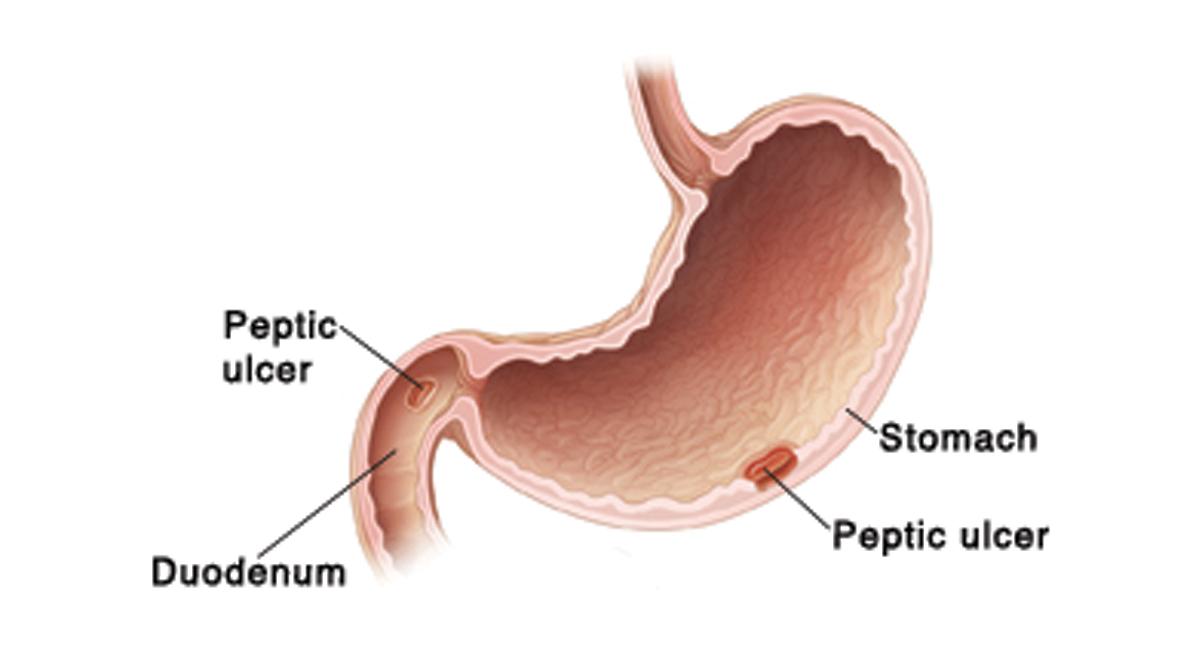
Introduction
The stomach is not always a haven for good food, it can be for sores as well. Those who have gone through even a mild stage of peptic ulcers will relate well. It is said that 10% of the people in this world tend to get affected by ulcers at some stage in their life. However, certain lifestyle changes and a good doctor is all you need to get the peptic ulcers treated.
What is a Peptic Ulcer?
Peptic ulcers are sores in the inner lining of the stomach, small intestine, or oesophagus. Peptic indicates the presence of acid. The nomenclature varies with the organs being affected. If in the stomach, the ulcers are called gastric ulcers, duodenal ulcers if in the small intestine and oesophagal ulcers if in the oesophagus. This is a recurring problem, i.e., even healed ulcers can keep marking their presence in your body unless eradicated.
Request an Appointment at Smiles
What Causes Peptic Ulcers?
- ● A bacterium called helicobacter pylori whose shape, scientists believe, evolved in a helical manner so that it can invade the mucous lining of the stomach. Most people have these bacteria in their bodies. They produce enzymes known as urease which create an alkaline environment and pacify the acids in the stomach. But, in some conditions, they increase the amount of acid and cause inflammation. Their entire mechanism of functioning is not very clear yet.
- ● Non-steroidal anti-inflammatory drugs or NSAIDs such as aspirin and ibuprofen inhibit the growth of mucus cells, which makes it more vulnerable to the effects of acids and reduces the blood flow to the stomach as well.
- ● Stress causes stress ulcers. It aggravates the situation for those who are regular users of NSAIDs.
- ● Certain dietary habits, such as high intake of spicy foods, alcohol consumption, smoking, and caffeine, are said to have a minor effect in initiating ulcers.
- ● Gastric ischaemia or reduced blood supply to the tissues in the stomach.
- ● Inflammation in bowels which affects the gastrointestinal tract.
- ● Destruction of blood vessels due to inflammation, also known as vasculitis.
- ● Gastrin secreting tumours in the duodenum and pancreas exacerbate ulcers.
What are the Symptoms of Peptic Ulcer?
- ● Abdominal pain or a burning sensation, which is correlated with the meals.
- ● A feeling of fullness in the stomach.
- ● Excessive production of saliva, a condition known as hypersalivation.
- ● Vomiting of blood.
- ● Loss of appetite followed by weight loss in the case of gastric ulcer. The contrary happens in the case of duodenal ulcer, i.e., weight gain.
- ● Tarry foul-smelling faeces.
The pain due to ulcers usually increases when the stomach is empty and flares up in the night. However, complications arise when blood starts oozing out in vomits, and at this point, ulcers become risky and can even cause death. Thus, it is extremely important to visit a doctor and get the ulcers diagnosed before the situation slips out of your hands.
How is Peptic Ulcer Diagnosed?
- ● To confirm the presence of ulcer-causing bacteria, the doctor might ask you to swallow urea and after an hour or so you will be asked to blow out in a sealed bag. This helps in identifying urease in the stomach, and the process is known as the urea breath test.
- ● Stool antigen test is carried out to confirm the presence of helicobacter pylori.
- ● Gastrointestinal X-Ray also helps in locating the ulcers.
- ● A biopsy is performed to rule out the possibility of cancer in the stomach.
How is Peptic Ulcer Treated?
Result : No doubt, peptic ulcers are devastating and painful but once treated, they will definitely provide you relief. Since they can reappear, try avoiding NSAIDs as much as possible and get a permanent treatment for the helicobacter pylori bacterium to exclude any chance of recurrence.
What are the Risks Associated with Surgery for Peptic Ulcer?
- ● Chances of ulcers appearing again
- ● Diarrhoea
- ● Deficiency of iron
- ● Dumping Syndrome – It is a situation in which the stomach dumps food very quickly into the duodenum.
Request an Appointment at Smiles
FAQ's
Do Peptic Ulcers Go Away on their Own?
Is there Any Home Remedy to Treat Gastric Ulcers?
What Aggravates Ulcers?
How to Kill Helicobacter Pylori?
Are Peptic Ulcers Genetic?
Need Help?
For any Information about our Locations, Doctors or Treatments.
